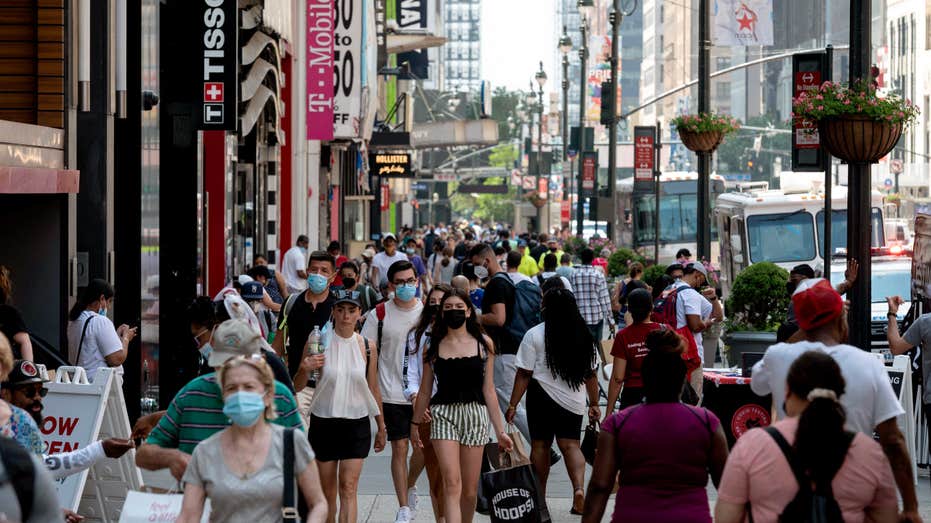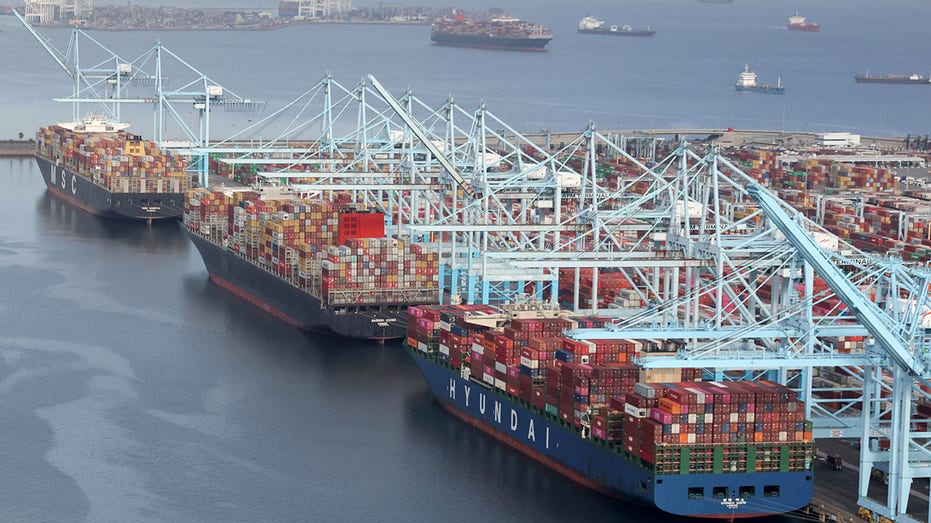Retailers get creative in supply chain crunch ahead of peak holiday demand
Retailers are facing the perfect storm with freight, rail and cargo shortages
Retailers are using different mitigation strategies to try and address ongoing supply chain disruptions and port congestion issues that have been further exacerbated by the delta variant of the coronavirus, according to an industry expert.
Right now, everyone is facing similar challenges throughout the entire supply chain, not just with the products themselves but with the services that are needed to get the products to the customers, Jon Gold, vice president of supply chain and customs policy at the National Retail Federation, told FOX Business.
CLICK HERE TO READ MORE ON FOX BUSINESS
"Demand is outpacing supply, not just for products, but for equipment such as empty containers and available space on ocean carriers," Gold said.
There are also congestion issues impacting vessels at seaports, as well as "intermodal rail moves, with cargo now sitting longer than normal." Intermodel rail refers to moving freight by railroad and by truck.

People walk through a shopping area in Manhattan on June 7, 2021 in New York City. (Angela Weiss/AFP via Getty Images / Getty Images)
The industry is also dealing with a lack of available warehouse space as warehouses are "running at near capacity," according to Gold.
"All of these issues along the supply chain have a trickle-down impact on the flow of goods," he said.
To try and mitigate issues for the upcoming shopping season, large and small retailers are trying to work with their service providers such as trucking companies and ocean carriers.
GET FOX BUSINESS ON THE GO BY CLICKING HERE
For one, they are using a mix of U.S. ports rather than "relying on just key West Coast ports," Gold said, adding that they are also "looking at further diversifying their supply chains were possible."
Another step they are taking is moving up their "peak shipping season" to bring in products earlier than they normally would, according to Gold. Typically, retailers will bring in the "bulk of their holiday merchandise" during August, September and October.
Instead, "a lot of companies have moved that timeframe up to July August and September to try and void those shortages," Gold said.

Shipping containers are unloaded from ships at a container terminal at the Port of Long Beach-Port of Los Angeles complex, amid the coronavirus pandemic, in Los Angeles, California on April 7, 2021. (REUTERS/Lucy Nicholson/File Photo)
MAJORITY OF CONSUMERS FEELING SUPPLY CHAIN DISRUPTIONS
Regardless, costs are still up for retailers.
"The ultimate question is…whether or not retailers are going to continue to absorb those costs" or if they are going to pass them down to the customer, which is the last thing they want to do, Gold said.
Tom Maoli, an industry expert who built a supply chain company with 750 warehouses around the world, says it will be a "long ride" for consumers.
Maoli predicts that prices will continue to rise "well into 2023 and possibly into 2024."





















